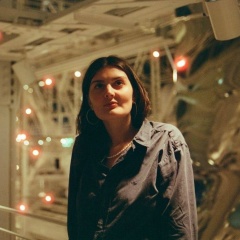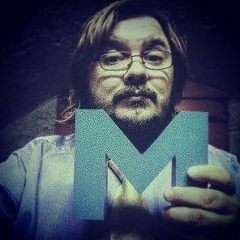Двое мне наиболее интересных современных писателя от науки о проблеме перевода текстов Шартрской школы.
Замечания Р. Шмаракова – почти подходы к фрейдовским топикам и лакановским регистрам со стороны медиевистики и классической филологии:
«Между тем речь идет о трех ячейках (celle, cellule) мозга, в которых размещаются три духовные способности: по Бернарду Сильвестру, который в «Комментарии» неоднократно обращается к этой идее: это остроумие (ingenium), рассудок (ratio) и память (memoria). Эту тему можно встретить у многих авторов XII в. — например, у Аделарда Батского в «De eodem et diverso»: «Как душа, распорядительница тел, не может прикладывать все свои силы во всех частях человеческого тела, но одно совершает в голове, другое — в сердце, иное — в печени, и даже разные части самой головы посвящает разным обязанностям — ведь на носу она руководствует воображением, в середине пользуется рассудком, на корме (то есть в затылке) укрывает память…» И даже у Вальтера Шатильонского, ближайшего предшественника Иосифа по части классицизирующего эпоса, в «Александреиде» описывается, как молодой Александр слушает наставления Аристотеля, «вверяя каждую тему последней келье» (extremae commendans singula cellae). Таким образом, Троил угодил Умбрасиду в ту часть мозга, где гнездится ratio. На примере этого комментария можно видеть, как люди выводят значение сложного контекста из него самого, не заглядывая даже в соседнюю комнату; это удивительно».
http://voxmediiaevi.com/2018/05/28/chartres/
Замечания Р. Шмаракова – почти подходы к фрейдовским топикам и лакановским регистрам со стороны медиевистики и классической филологии:
«Между тем речь идет о трех ячейках (celle, cellule) мозга, в которых размещаются три духовные способности: по Бернарду Сильвестру, который в «Комментарии» неоднократно обращается к этой идее: это остроумие (ingenium), рассудок (ratio) и память (memoria). Эту тему можно встретить у многих авторов XII в. — например, у Аделарда Батского в «De eodem et diverso»: «Как душа, распорядительница тел, не может прикладывать все свои силы во всех частях человеческого тела, но одно совершает в голове, другое — в сердце, иное — в печени, и даже разные части самой головы посвящает разным обязанностям — ведь на носу она руководствует воображением, в середине пользуется рассудком, на корме (то есть в затылке) укрывает память…» И даже у Вальтера Шатильонского, ближайшего предшественника Иосифа по части классицизирующего эпоса, в «Александреиде» описывается, как молодой Александр слушает наставления Аристотеля, «вверяя каждую тему последней келье» (extremae commendans singula cellae). Таким образом, Троил угодил Умбрасиду в ту часть мозга, где гнездится ratio. На примере этого комментария можно видеть, как люди выводят значение сложного контекста из него самого, не заглядывая даже в соседнюю комнату; это удивительно».
http://voxmediiaevi.com/2018/05/28/chartres/
Two of me are the most interesting modern writers from science on the problem of translating texts of the Chartres School.
Remarks of R. Shmarakov - almost approaches to Freudian topics and Lacanian registers from the side of medieval studies and classical philology:
“Meanwhile, we are talking about three cells (celle, cellule) of the brain that contain three spiritual abilities: according to Bernard Sylvester, who in the Commentary repeatedly refers to this idea: this is wit (ingenium), reason (ratio) and memory ( memoria). This topic can be found among many authors of the XII century. - for example, with Adelard Batsky in De eodem et diverso: “As a soul, the manager of bodies cannot apply all his strength in all parts of the human body, but he does one in the head, the other in the heart, the other in the liver, and even devotes different parts of the head to different duties - because on the bow she follows the imagination, in the middle she uses her reason, on the stern (that is, in the back of the head) she covers her memory ... ”And even Walter of Chatillonsky, Joseph’s closest predecessor in terms of the classicizing epic, in“ Alexanderide ” "Describes how young Alexander listens to the instructions of Aristotle," entrusting every topic of the last cell "(extremae commendans singula cellae). Thus, Troilus landed Umbrasida in that part of the brain where the ratio nests. Using the example of this commentary, you can see how people derive the meaning of a complex context from it, without even looking into the next room; it is amazing".
http://voxmediiaevi.com/2018/05/28/chartres/
Remarks of R. Shmarakov - almost approaches to Freudian topics and Lacanian registers from the side of medieval studies and classical philology:
“Meanwhile, we are talking about three cells (celle, cellule) of the brain that contain three spiritual abilities: according to Bernard Sylvester, who in the Commentary repeatedly refers to this idea: this is wit (ingenium), reason (ratio) and memory ( memoria). This topic can be found among many authors of the XII century. - for example, with Adelard Batsky in De eodem et diverso: “As a soul, the manager of bodies cannot apply all his strength in all parts of the human body, but he does one in the head, the other in the heart, the other in the liver, and even devotes different parts of the head to different duties - because on the bow she follows the imagination, in the middle she uses her reason, on the stern (that is, in the back of the head) she covers her memory ... ”And even Walter of Chatillonsky, Joseph’s closest predecessor in terms of the classicizing epic, in“ Alexanderide ” "Describes how young Alexander listens to the instructions of Aristotle," entrusting every topic of the last cell "(extremae commendans singula cellae). Thus, Troilus landed Umbrasida in that part of the brain where the ratio nests. Using the example of this commentary, you can see how people derive the meaning of a complex context from it, without even looking into the next room; it is amazing".
http://voxmediiaevi.com/2018/05/28/chartres/
У записи 4 лайков,
0 репостов,
735 просмотров.
0 репостов,
735 просмотров.
Эту запись оставил(а) на своей стене Ксения Першина

























